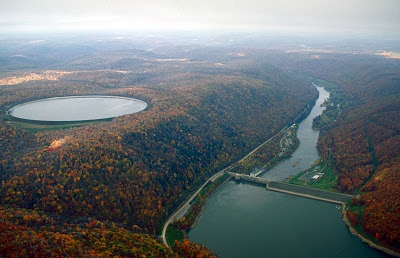EPA Steps into the Mix While States Continue Swift Action in Light of Potential Health Risks
By: Jeffrey Karp and Kevin Fink
In a prior posting, we noted the proliferation of state legislative and regulatory activity involving Per- and polyfluoroalkyl substances (PFAS), a class of man-made chemicals used for over 70 years in a variety of products, such as nonstick cookware, firefighting foam, waterproofing and stain-resistant coatings, and in industrial manufacturing. Measured concentrations of legacy PFAS chemicals are stable and do not degrade very rapidly in the environment. PFAS like perfluorooctanoic acid ("PFOA") and perfluorooctane sulfonate ("PFOS") in groundwater and drinking water sources have been associated as possible links to negative impacts on human health, including decreased fertility rates, increased risk of certain cancers and impaired immune system function.
Read More
Topics:
EPA,
PFAS,
Hazardous Substances
By Jeffrey Karp and Kevin Fink
In a recent article posted by Manufacturing Today, we discussed the unexpected risks facing manufacturers of products containing Per- and polyfluoroalkyl substances (PFAS). PFAS are a class of more than 3,000 man-made chemicals that are receiving heightened public awareness due to concerns about their potential negative impact on human health and the environment.
In addition to the commencement of litigation and the promulgation of PFAS regulations in a number of states, two bills were introduced in the Senate during the last session of Congress that: (1) sought to “encourage” Federal - State cooperative agreements to address removal and remedial actions; and (2) to require the United States Geological Survey (“USGS”) to perform a nationwide survey of the extent of these ubiquitous contaminants.[1]
Read More
Topics:
EPA,
PFAS,
CERCLA,
Hazardous Substances
By Jeffrey Karp and Kevin Fink
Among other responsibilities, the Federal Energy Regulatory Commission ("FERC" or "the Commission") approves and issues construction certificates for interstate gas pipelines and related infrastructure under section 7 of the Natural Gas Act ("NGA"). Section 7(c) of the NGA requires that any person seeking to construct or operate a facility for the transportation of natural gas in interstate commerce must obtain a certificate of public convenience and necessity from FERC. FERC’s 1999 Statement of Policy - Certification of New Interstate Natural Gas Pipeline Facilities - outlines the evaluation standard for issuing a certificate of public convenience and necessity. Once a certificate application is filed, the gating question is whether the project can go forward without subsidization by the pipeline’s existing customers. If that threshold requirement is met, FERC determines whether the applicant has sought to eliminate or minimize adverse effects on existing customers, existing pipelines in the market and their customers or landowners and communities affected by the route of the new pipeline. If the proposed project has no adverse effects, the Commission proceeds to a preliminary determination or a final order. However, if there are residual adverse effects - after efforts have been made to minimize them - FERC balances the evidence of public benefits achieved against the residual adverse effects in a economic test, and then proceeds to environmental and other reviews if the benefits outweigh the adverse effects.
Read More
Topics:
FERC,
National Environmental Policy Act,
Natural Gas Act
By Jeffrey Karp and Kevin Fink
Over a year has elapsed since Hurricane Maria devastated the island of Puerto Rico, which, in addition to claiming thousands of lives, destroyed Puerto Rico’s electrical infrastructure. As discussed in prior postings, a number of factors have contributed to the delay in restoring and upgrading the electrical grid, including contract mismanagement by the Puerto Rico Electric Power Authority ("PREPA") and the lack of a consensus approach regarding the energy mix to be deployed on the Island.
Read More
Topics:
Renewable Energy,
Puerto Rico,
Hurricane Maria
By Jeffrey Karp and Kevin Fink
Section 301(c) of the Comprehensive Environmental Response, Compensation, and Liability Act (“CERCLA”) authorizes the Federal government, States and federally recognized Indian Tribes to act as "trustees" on behalf of the public to pursue claims to redress injury or destruction of natural resources caused by hazardous substance releases. The measure of damages is calculated based upon the cost to restore or replace the injured or destroyed natural resources. Trustees also may recover compensation for services the resources would have provided the public pending restoration, as well as the reasonable cost of assessing injury and determining appropriate restoration.
Read More
Topics:
Environmental Policy,
Environmental Law
By Leonard Miller and Jeffrey Karp
Dr. Frances H. Arnold, a chemical engineering professor at Caltech, has been awarded the 2018 Nobel Prize in Chemistry for her work on biofuels and pharmaceuticals. But she also is the inspiration for and a partner in a company trying to make pest control sustainable with synthetic biology. In 2013, Dr. Pedro S. Coelho, the company’s co-founder, along with Dr. Arnold and another scientist, started Provivi, which seeks to cost-effectively make pheromones that farmers can use to draw insects away from crops and prevent them from finding each other to mate.
Read More
Topics:
Pesticides,
Environmental Law
In recent posts, we have discussed how Order 841 issued by the Federal Energy Regulatory Commission (“FERC”) on February 15, 2018 is expected to create new opportunities for the expansion of grid-scale (“in front of the meter”) energy storage. Order 841 is intended to encourage deployment of energy storage by addressing participation of energy storage resources in wholesale electricity markets operated by Regional Transmission Organizations (“RTOs”) and Independent System Operators (“ISOs”).
Read More
Topics:
Energy Storage,
FERC,
Order 841
By Kevin Fink
On July 18, 2018, the U.S. Congress House Committee on Energy and Commerce held a hearing to assess the progress being made by federal and state governments to promote the role of energy storage in the U.S. electrical system. A panel of five witnesses – an executive from the California Independent System Operator (“CAISO”); a partner at an energy and environmental economic consulting firm; and executives from E.ON, Fluence Energy, and Duke Energy – were present to testify and answer questions of the legislators.
Read More
Topics:
Energy Storage,
Renewable Energy,
U.S. House of Representatives,
Investment Tax Credit
By Jeffrey Karp
As discussed in our posting covering continuing challenges to rebuild Puerto Rico’s electrical grid, the Puerto Rico Electric Power Authority (“PREPA”) has inhibited the recovery and redevelopment of the Island’s energy system. On July 25, 2018, the U.S. Congress House Committee on Natural Resources held an oversight hearing to discuss the “Management Crisis at the Puerto Rico Electric Power Authority and Implications for Recovery.” A panel of five witnesses – Bruce Walker (U.S. Department of Energy, Assistant Secretary of the Office of Electricity), Eduardo Bhatia (Puerto Rico Senate Minority Leader) and three energy and infrastructure advisors and consultants[1] – were present to testify and answer legislators’ questions. Puerto Rico’s Governor Ricardo Rosselló also was invited, but chose not to attend.
Read More
Topics:
Microgrid,
U.S. House of Representatives,
Puerto Rico,
privatization
By Kevin Fink
Sullivan counsel recently participated in the “Grid Scale Energy Storage Summit,” part of the expansive Hydrovision International conference held at the end of June in Charlotte, North Carolina. For the first time on an international scale, the Summit brought together both energy storage and hydropower experts from around the world for the purpose of debating, among other things, the future role of hydropower in the mix of energy storage options.
Read More
Topics:
Energy Storage,
Renewable Energy,
FERC,
hydropower






.jpg?width=220&name=Sullivan%204c(B2402503).jpg)